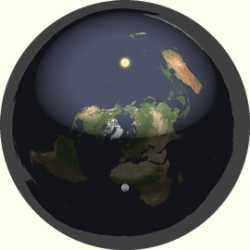>>11934458A centripetal force pulls you in. A centrifugal force is what wants to expel you, not a centripetal force. He is not moving because of normal reaction force from the surface of the earth on him. If there was no solid ground beneath him he would continue to plummet into the earth.
The circumference is fucking irrelevant, gravity acts towards the centre, if you are on the arctic or the equator it will point inwards, I hope you aren't suggesting we should take a circular slice around the cyclindrical axis
The equator does have a slightly wider radius at the equator, yes, because it's an oblate ellipsoid, there's slight altitude differences which are available to look up (and yes, sport is slightly different at different altitudes, mainly due to oxygen levels though as it's not a huge differential in gravitational acceleration across the surface)
You are confusing two different things. Gravity IS the centripetal force acting upon you. Apart from the very small change in gravity at different altitudes, that gravity is the same. It isn't lower up in the arctic, the earth has the same mass up there as it does at the equator.
The only difference is at the equator you are rotating faster than at the poles because you have a higher tangential velocity
your gravity force is GMm/r^2
centripetal force = mv^2/r
GMm/r^2=mv^2/r
GM/r = v^2
v = sqrt(GM/r)
so you see, your velocity changes as your radial distance from the axis of spin changes, you go faster at the edge, but the GRAVITY doesn't change. you have the same gravity in antarctica as the equator, GMm/r^2

